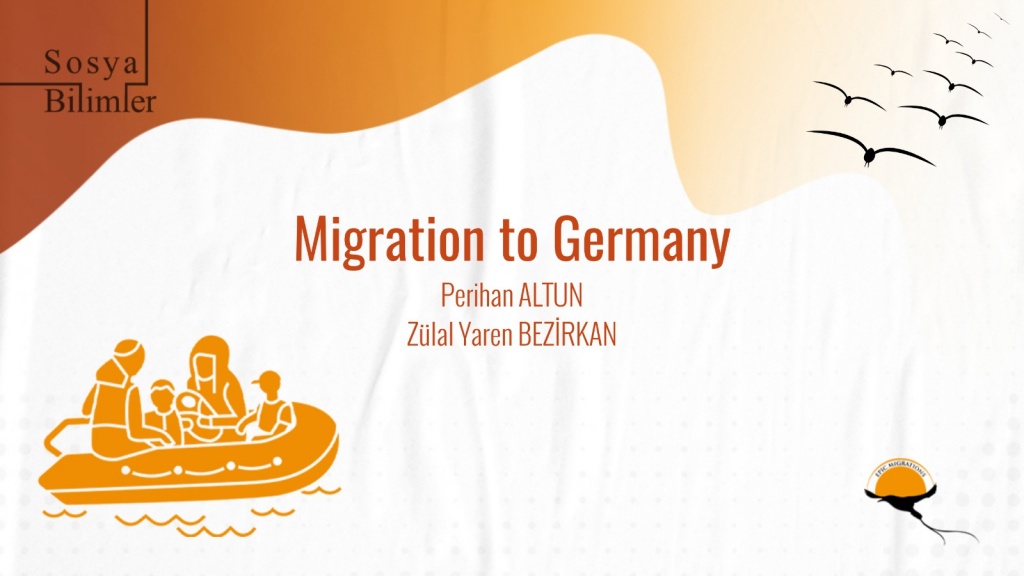Throughout history, people have migrated from one geographic region to another due to various reasons such as natural disasters, wars, political factors, and socio-economic factors. In these migrations, whether forced or voluntary, people are in search of better living conditions. Consequently, their preferences are towards countries that offer better conditions than their home countries. While there are numerous determining factors for these conditions, some of the main ones include employment opportunities, healthcare services, educational facilities, and housing.
Germany, throughout its history, has been a host to a significant amount of labor migration due to the growing need for workforce. In 1961, a labor agreement was signed between Turkey and Germany. As a result, while migrations to Germany were initially individual in nature, this agreement brought mass labor migrations to the forefront. The initial plan for these labor migrations was temporary. However, as Germany’s demand for labor continued and Turkish individuals also expressed a preference for settling there, the migrations became permanent. The transition to permanent migration was further facilitated by the reunification of families, as the migrant workers brought their families along with them. This situation has had a significant impact on the increase of the Turkish population in Germany.
In present-day Germany, one out of every four individuals consists of post-migration arrivals. According to the Federal Statistical Office of Germany (2021), this number is estimated to be 22.3 million. Looking at the data from the Migrationsbericht (2019), Romania ranks first with 14.8% of migrations to Germany, followed by Poland with 8.4%, Bulgaria with 5.3%, Italy with 4.0%, and Turkey with 3.3%. To be considered of migrant origin in Germany, an individual should neither be a German citizen themselves nor have one of their parents as a German citizen. For those who later become German citizens, this is achieved through being associated with the country or culture they come from, providing cultural or geographical clues. The usage of the term “Türkiye kökenli Alman vatandaşı” (German citizen of Turkish origin) in the process of Turkish individuals acquiring German citizenship is an example of this. Additionally, among the migrant-origin population in Germany, 11.8 million individuals possess German citizenship, with 54% of them being natural-born German citizens.
Integration is a concept that refers to the process of migrants adapting to the culture and living conditions of the country they migrate to. Different perspectives can be observed among the native population regarding immigrants. While some perceive immigrants as a burden, others believe they can have supportive effects on the country. Research has shown that migrants from Turkey often encounter discrimination, particularly in the areas of employment and education.
In Germany, on May 25, 2016, an integration law was enacted to regulate the rights and responsibilities of refugees. In accordance with this law, authorized authorities in Germany are tasked with organizing integration courses, establishing labor laws, and improving housing facilities. Refugees have started to receive integration education regarding Germany’s history, culture, and laws. In order to reside permanently in Germany, it is required for individuals to have a command of the German language, so refugees are obligated to participate in language courses within the first six months of their arrival. The aim of this integration law is to minimize the difficulties faced by refugees in areas such as education, employment, and social life.
Writer: Perihan Altun
Translator: Zülal Yaren Bezirkan

